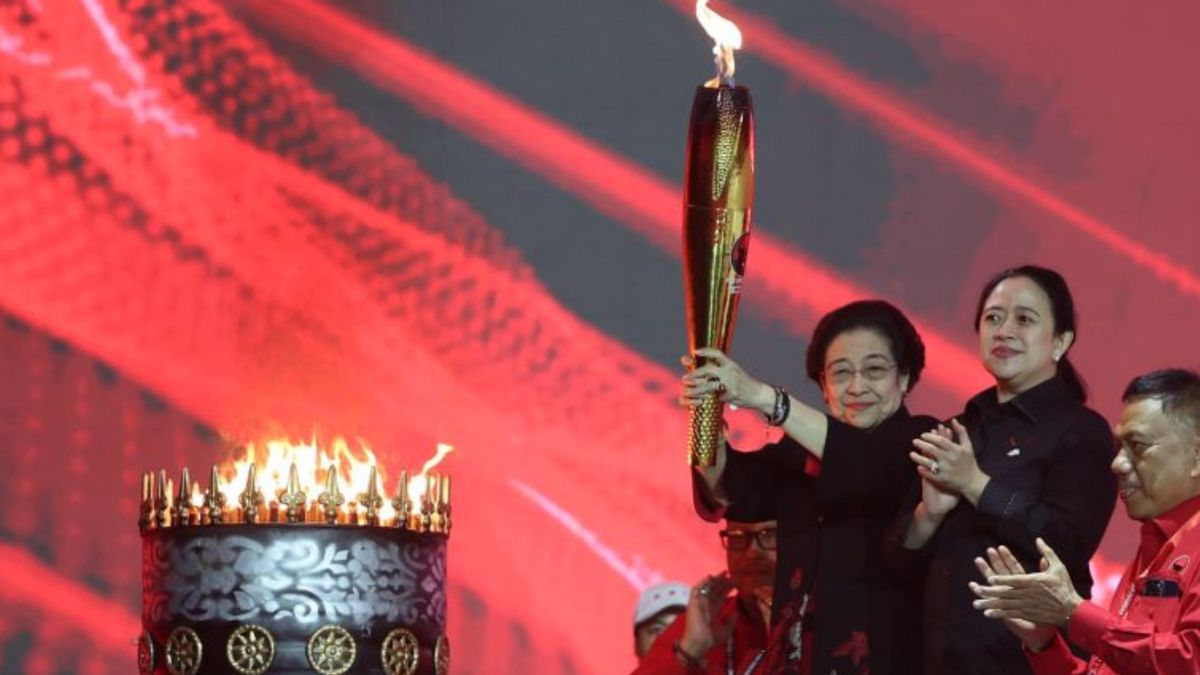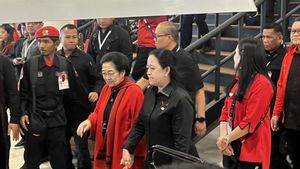JAKARTA - The chairman of the DPR who is also the Chair of the PDI-P (PDIP) DPP, Puan Maharani, passed a number of revisions to laws that were deemed problematic, to his knowledge.
Puan did not feel missed because the discussion had been carried out even though she was abroad.
This was conveyed by Puan in response to the statement of PDIP General Chair Megawati Soekarnoputri who highlighted her subordinates in the DPR RI for passing the revision of the Constitutional Mahakamah Law (MK) and the Broadcasting Law.
"So, of course, everything that happened in the DPR has been to my knowledge to be done in the DPR," said Puan to reporters at the Beach City International Stadium, Ancol, North Jakarta, Saturday, May 25.
"These things have indeed been discussed through the factions in the DPR," he continued.
Despite Megawati's spotlight, the PDIP faction in the DPR, said Puan, continued to participate in discussing the revision of the law which was considered problematic. This step is a form of escort.
"So it's one of the tasks to oversee each other, coordinate, and discuss it in the DPR," he said.
As previously reported, Megawati had poked at the PDIP faction at the PDIP National Working Meeting on Friday, May 24. In her political speech, she couldn't stop thinking that the revision of the Constitutional Mahakamah Law (MK) and the Broadcasting Law could pass.
"Well, imagine using the revision of the Constitutional Court Law, which I think the procedure is not true," Megawati said during a speech.
This condition made Megawati question the attitude of her subordinates in the DPR to the Chairman of the PDIP faction of the DPR, Utut Adianto. This is because this revision was ratified in the middle of a recess.
SEE ALSO:
"Suddenly during the recess. I myself asked, "There was Mr. Utut, where was it, I asked him. What is this? Ms. Puan is gone. Yes, I said to Mexico, how come it's really good," said Megawati.
It did not stop there, the fifth President of the Republic of Indonesia also touched on the discussion of the Broadcasting Bill. According to Megawati, the legislation is problematic because it limits journalistic work by prohibiting investigative products.
In fact, journalists are the fourth pillar of democracy. Why is there a media,' he said.
"That's why I always say, there is a Press Council, you know, then you have to follow the so-called journalistic code of ethics. How come you can't investigate," concluded Megawati.
The English, Chinese, Japanese, Arabic, and French versions are automatically generated by the AI. So there may still be inaccuracies in translating, please always see Indonesian as our main language. (system supported by DigitalSiber.id)


















